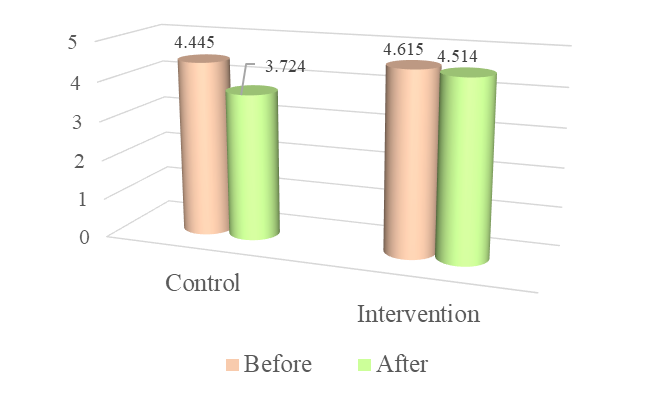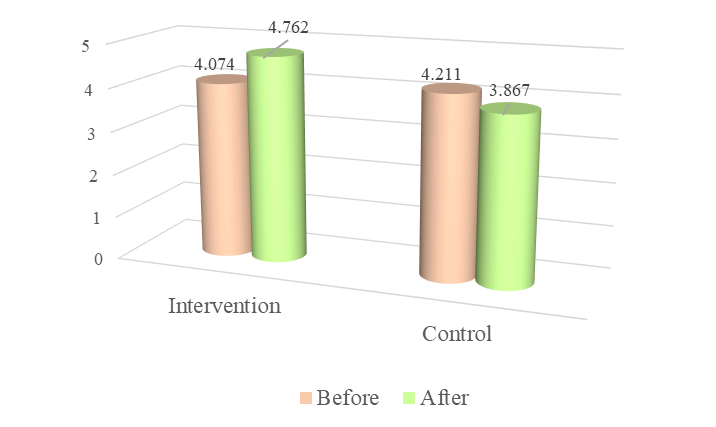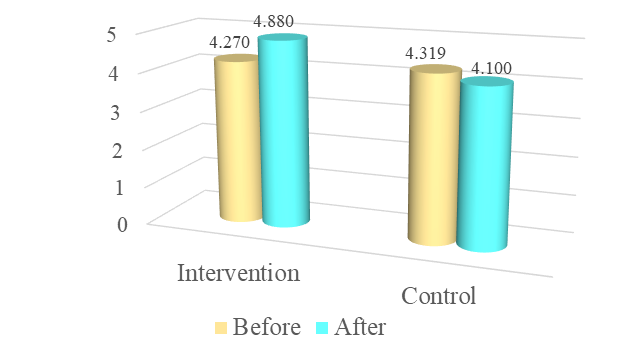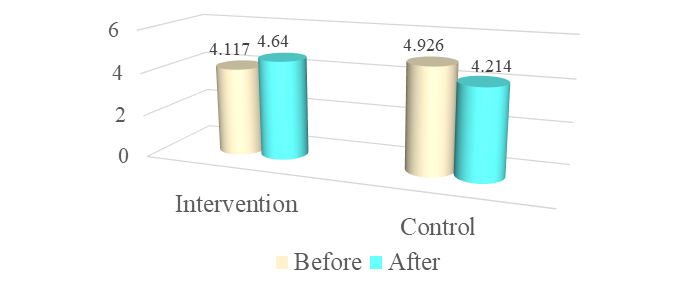Joint educational committees (teachers and parents) – improving status of elementary school teachers
Abstract
This research, which seeks and discusses strategies to strengthen the teaching profession and raise teachers' status in Israel, has national importance on a macro level. It is true that many studies have investigated the status of the teaching profession in Israel and much has been written on the subject but the current research proposes a new angle that has not yet been examined: whether educational partnerships between parents and teachers can influence parents' attitudes towards status of the teaching profession. Joint educational committees-J E C- of teachers and parents enable parents and teachers first to recognize, hear, share ideas, influence and of course take part in the educational process at school. Dialogue circles is a way to manage joint educational committees. Therefore, it is necessary to learn how to manage the discourse circles and to integrate the process into the school routine. We believe in the power of discourse circles in bringing together parents and teachers creating a platform for an optimal educational partnership, as long as the discourse circles are based on principles of mutual respect, trust, joint responsibility and sharing. Since the issue of teachers' status occupies additional western countries we believe that the findings of this research and program proposed may also interest education researchers in these countries. This article presents an intervention program implemented especially for this research and the rationale underpinning the discourse circles tool, the research method and main findings.
Keywords: Teachers' statusdiscourse circleseducational committees
Introduction
Intervention Programs Rationale
The Israeli Ministry of Education produced a document containing standards of management and creating a school climate analogous to Maslow's hierarchy of needs including the values: respect, esteem, love and belonging (Ministry of Education, 2005). According to this document, schools are supposed to strive to establish means of discourse with parents, to provide fluent information about a school's activities, to structure arrangements to transfer information to parents regarding school and their children, to define areas in which parents are partners and build educational partnerships. In addition, to encourage parents and include them in decision making and school activities. The aim is that schools will act from a community orientation and try to harness all school comers (educational teams, pupils, parents and other community factors) to create the culture and climate in educational institutions. As we can also learn from the organization's standards document of the PTA (Parents-Teacher Association, 2004). The aim is to connect school, home and community by two-way communication, (home and school), support school activities, acceptance of the variance in the school population, volunteering in the community, all this in order to succeed and promote student achievement. The rationale of the intervention program Proposed by our research is to establish a permanent group, whose members are parents and teachers from the same educational institution, with a common interest who will undergo a process that includes: getting to know a person (teacher) and his/her work personally and professionally, discuss community collaborations and ways of reducing tensions and bringing participants closer together. According to the ecological theory, Bronfenbrenner, (1979), giving teachers the possibility of being partners in school decision making is likely to improve their status both in their own eyes and the eyes of the general public. Additionally, such a group has the ability to empower both parents and teachers: parents by the fact that they are included in school decision making, and teachers by the fact that they are influential in the adult, not just children, arena. According to the social bargaining theory (Hughes, 1958) professional status is determined according to its target audience. Studies (Rutherford, 1995; Greenberg & Sorek, 2003) have found that strengthening the relationship between schools and parents has resulted in improved pupil achievements, more positive attitudes of families and communities towards schools and teachers. The National Authority for Measurement and Evaluation in Education's in Israel review (The National Authority for Education Evaluation - RAMA, 2015) showed that parents are interested in taking part in school educational processes and this does not refer to accompanying their children on outings, but much more meaningful participation. Involving parents in educational processes is enabled by principals and teachers' policy known as the open-door approach, based on the assumption that there is a need for closer contacts between school and the community(Friedman & Fisher,2003).Schools have great responsibility in encouraging parents to get more involved .When parents know that their involvement is expected and valued, they are more motivated to assume an active role in helping their children succeed in school (Lawson, 2003; Epstein & Sanders, 2000). Discourse circles between teachers and parents are a tool to create reciprocal relations based on acquaintanceship, learning, dialogue, decision making, where all partners in an educational institution benefit: parents, teachers and pupils. According to Identification and alertness theory (Friedman & Fisher, 2003). Discourse circles are an example of educational collaboration where parents are highly involved in school as a result of parental identification and wakefulness. This optimal approach presents parents' involvement level together with identification with the system and sensitivity to its needs as well as the needs of their children (Powell, Son, File, & San Juan, 2010). Friedman, (Friedman & Fisher, 2003) suggested a classification of parental involvement patterns: (a)Alleged involvement –whereby parents participate in discussions and eventually agree with decisions made by school staff; (b) Partial involvement –whereby parents participate in discussions, try to influence decisions but the final decision remains the school's; (c) Full involvement – a pattern whereby parents participate in the discussions and constitute equal partners with staff in the decision making process. This type of involvement is more desired than the previous ones as parents can have influence at school.
Structure of the Intervention Program
The intervention program's operational Aim was to bring together teachers and parents (17 parents&17 teachers in three joint committees in an elementary school in central Israel) to sit together around a table, to discuss educational goals to accomplish during the year, between November and May. The program consisted of six sessions jointly led by a parent and a teacher. The syllabus included (1) A preparatory meeting -coordinating expectations for joint leadership and work; (2) Getting to know one another and coordinating expectations of parent and teacher committee members (3) Identifying needs and setting goals; (4) Feedback on committee activities and direction; (5) The school principal's role in leading cooperation between teachers and parents; (6) summary and evaluation of committee activities and important components in the reciprocal relationship between parents and teachers. The model for parents' involvement in the decision-making process in the different committees moved on the continuum between partial involvement and full involvement
Problem Statement
Studies Greenberg and Sorek, 2003 have found that involving parental community in educational processes in elementary schools can strengthen the relations between schools and parents, improve pupils' achievements as well as improve parents' attitudes towards schools and teachers. When Parents strengthened their links with schools and curricula, showed active involvement in pupils' learning, teachers earned support and also strengthened their relationships with pupils and their parents (Rutherford, 1995). Schools choose to deal with parents' desire to be involved in educational processes in different ways. The question is which institutional activities are required for constructing ways of communication that will lead to harmony between school and parents? Alongside this is it possible that there is an optimal way that is likely to contribute, in the end, to relationships between parents and teachers as well as to raise the status of teachers and the teaching profession in the eyes of the parents and hence the Israeli public in Israel. We believe in the power of discourse circles in bringing together parents and teachers and creating a platform for an optimal educational partnership, as long as the discourse circles are based on principles of mutual respect, trust, joint responsibility and sharing. The intervention program built especially for this research relies on parents-teachers' discourse circles.
Research Questions
What is the effectiveness of the program proposed by our research in relation to parents’ attitudes towards teachers’ status in primary school and teachers' attitudes towards elementary school parents and collaboration with parents?
Purpose of the Study
The aim of this research is to examine the feasibility of relationship between educational partnerships between parents and teachers in elementary schools and attitudes of parents toward the status of teachers and the teaching profession in Israel & teachers attitudes toward elementary school parents
Research Methods
The study involved 68 parents and 67 teachers in two groups, an intervention group and a control group (parents and teachers who did not undergo the intervention). Parents and teachers in both groups completed questionnaires on two time points - before and after the intervention. This was done in order to assess the effectiveness of intervention in terms of time (before and after) and the group aspect (how parents and teachers in the intervention group differed from parents and teachers in the control group). To gather data about
Findings
Following are the main quantitative research findings and analyses that will examine differences between the intervention group and the control group over time according to the questionnaire components. A specific hypothesis accompanies each component.
Parents' Value-Based Attitudes Towards Teachers
Parents were presented with eight different principles that affect parents-school relationships, such as "trust" or "tolerance". Parents were asked to rate each principle on a 6-point Likert scale between 1 (not at all) and 6 (definitely). The higher the mean score in this questionnaire, it means that parents attribute more weight to positive values in their relationship with teachers at school. The questionnaire's reliability was examined using internal consistency and was found to be high (Alpha Cronbach, 0.931).
Hypothesis: A significant effect will be found with regard to parents' value-based attitudes towards teachers. After the intervention, parents will express a more value-based attitude towards teachers in their children's school than before the intervention, especially compared with the control group.
The results showed that in general in the intervention group (M = 4.91, SD = 1.27), parents supported a more value-based attitude toward teachers in the school compared to the control group (M = 4.20, SD = 1.09). The result was significant (F = 1,102) = 4.12, p < .01). In addition, a significant interaction was found between point in time and group (F = 1,102) = 2.222, p <.05), meaning, while the control group had a significant decrease in the parents' value-based attitude towards teachers (t = 2.24, p <.05), the intervention group showed a significant increase in parents' value-based attitudes (t = 2.12, p <.05). This hypothesis was confirmed. In other words, in the intervention group, parents supported a more value-based attitude towards teachers at school than in the control group. Furthermore, the intervention program led to an improvement in the parents' attitude towards the teachers, so that the parents in the intervention group expressed a more value-based attitude towards the teachers after participating in the program (Figure

Parents' Positive Evaluation of Teachers
Parents were presented with 10 statements that examined various aspects of parents' evaluation of teachers, such as "I value my children's teachers for being tolerant with my children" and "I appreciate my child's teachers for helping my child with all that is necessary." Parents were asked to rate each statement on a 6-point Likert scale between 1 (not at all) and 6 (definitely). The higher the mean score in this questionnaire, the more positive parents' evaluation of teachers. The questionnaire's reliability was examined using internal consistency and was found to be high (Alpha Cronbach, 0.949). Hypothesis: A significant effect of parents' positive evaluation of teachers will be found. After the intervention, parents will treat teachers more positively than before the intervention, especially compared with the control group. The analysis showed that in general in the intervention group (M = 4.54, SD = 0.71), parents showed a more positive relationship with the teachers than in the control group (M = 4.09, SD = 1.13) significantly (F = 1,102) = 1.91, p <.05). Furthermore, there was a significant interaction between time and group - F (1,102) = 2.905, p <.05), meaning that while the control group there was a significant decrease in parents' positive evaluation of teachers (t = 1.88, p <.05), in the intervention group, there was a significant increase in parents' positive attitudes towards teachers (t = 2.32, p <.05).. This hypothesis was confirmed. In other words, in the intervention group, parents expressed a more positive attitude towards teachers at school than in the control group. In addition, the intervention program led to an improvement in the parents' attitude towards teachers, so that the parents in the intervention group expressed a more positive attitude towards the teachers after participating in the program (Figure

Teachers' Attitudes Towards Reciprocal Parents-School Relationship
Teachers were presented with 39 statements that examined various aspects of parents- school relationship, such as ""It is very important that a parent be interested in the level of facilities at school" " and "It is very important that parents are familiar with the teaching methods at school." Teachers were asked to rate each statement on a 6-point Likert scale between 1 (not at all) and 6 (definitely). The higher the mean score in this questionnaire, the more teachers believe that parents should be more involved in the school in terms of their knowledge and interest. The questionnaire's reliability was examined using internal consistency and was found to be high (Alpha Cronbach, 0.951). Hypothesis: A significant effect of the intervention will be found with regard to attitudes toward parents-school interaction. After the intervention, teachers will find that parents-teachers' interaction is more important than before the intervention, especially compared to the control group. The results showed that, in general, the intervention group (M = 4.27, SD = 0.71) did not show different attitudes toward parents-school interaction compared with the control group (M = 4.03, SD = 0.60) p = .7).However, a significant interaction was found between time and group (F (1,103) = 2.523, p <.05). While teachers in the control group had a slight but insignificant decrease in attitudes (t = 1.12, p = .311), teachers in the intervention group experienced an increase (t = 2.78, p <.05), meaning teachers in the intervention group believe parents should be more involved in school. This hypothesis was confirmed. In other words, in the intervention group, teachers expressed a more positive attitude towards teachers-parents' interaction at school compared with the control group (Figure

Teachers' Value-Based Attitude Towards Parents
Teachers were presented with eight different principles that affect parents-school relationships, such as "trust" or "tolerance". Teachers were asked to rate each principle on a 6-point Likert scale between 1 (not at all) and 6 (definitely). The higher the mean score in this questionnaire, the greater the more it means that teachers attribute more weight to positive values in their relationship with teachers at school. The questionnaire's reliability was examined using internal consistency and was found to be high (Alpha Cronbach, 0.938). Hypothesis: A significant effect will be found with regard to teachers' value-based attitudes towards parents. After the intervention, teachers will express a more value-based attitude towards parents than before the intervention, especially compared with the control group. The results showed that, in general, there was no difference between teachers' value-based attitudes in the intervention group (M = 4.64, SD = 0.84) compared with the control group (M = 4.68, SD = 0.97) (F (1,102) = 0.305, p = .582) However, a significant interaction was found between time and group, F(1,102)=2.635, p < .05). While teachers in the control group had a significant decrease in attitudes (t = 2.13, p < .05), teachers in the intervention group experienced an increase (t = 2.32, p <.05), meaning the intervention led to an increase in teachers' increase in their value-based attitude towards parents. The hypothesis was confirmed. In other words, participation in the intervention program led to an increase in the teachers' value-based attitude toward the parents (Figure

Integrative Findings
The research findings showed that the more positive attitudes toward the parents-school relationship, the value-based parents' attitude towards teachers, the more they show positive appreciation of teachers, and the more they are involved in class and in school. It was also found that the more positive teachers' attitudes towards the relationship with parents at school, the more involved they are in the relationships with parents, and express value-based attitudes towards them.
Conclusion
The aim of this research was to examine the feasibility of relationship between educational partnerships between parents and teachers in elementary schools and attitudes of parents toward the status of teachers and the teaching profession in Israel & teachers attitudes toward elementary school parents.
We have seen that the intervention program that was formulated in order to improve parents 'attitude towards teachers' status at school is indeed effective. In particular, it was found that the intervention program improves parents 'attitudes, as well as teachers' attitudes toward higher levels of school involvement, greater participation, more value-based and positive attitudes, and the involvement of both parents and teachers in school for promoting pupils' wellbeing. The best educational partnerships between the school community and school are built over time and are expected to encounter many obstacles. For example, in the current study, throughout the process, teachers oscillated between optimism and pessimism. Teachers demonstrated very pessimistic attitudes towards process, relations with parents, and the committee's ability to influence. In contrast, parents were optimistic about the necessity of the process, cooperation with teachers and the committee's ability to promote processes in the school. Because the main beneficiaries of the process are all the role partners at school: first and foremost, pupils, teachers and parents, there is no need to succumb to dear and give up the principle and process. Discourse circles between school staff and parents are a tool that enables acquaintance, learning, and trust as long as the process is done while adhering to the basic values of mutual respect, tolerance and patience. Sometimes, the process requires an agreed upon external facilitator to lead the process at least in its early stages. The school has the responsibility to convene such meetings and invite the parents and teachers to participate in discourse circles, committees, parents' days, peak days and more.
References
- Bronfenbrenner, U. (1979). The Ecology of Human Development: Experiments by Nature and Design. Cambridge: Harvard University Press
- Epstein, J. L., & Sanders, M. G. (2000). Connecting home, school, and community. In Handbook of the sociology of education (pp. 285-306). Boston, MA: Springer.
- Friedman, I. (2011). Parents–School Relationship in Israel. EyunimBe'MinhalUveIrgunHachinuch, 32, 237-267 (In Hebrew).
- Friedman, Y., Fisher, Y. (2003). Parents and School.Attitudes and Level of Involvement (Research Toll Serie). Jerusalem: Hennrieta Szold Institute (In Hebrew).
- Greenberg, Z., Sorek, Z. (2003). Educational Reforms in the World – Promoting Factors. MASA web portal. Retrieved from: http://portal.macam.ac.il/ArticlePage.aspx?id=209(InHebrew).
- Hughes, E. C. (1958). Men and their work. Free Press.
- Lawson, M. A. (2003). School-family relations in context: Parent and teacher perceptions of parent involvement. Urban education, 38(1), 77-133.
- Ministry of Education (2005). Standards for the creation, management and control of culture and climate School - draft document.
- Powell, D. R., Son, S. H., File, N., & San Juan, R. R. (2010). Parent–school relationships and children's academic and social outcomes in public school pre-kindergarten. Journal of School Psychology, 48(4), 269-292.
- PTA (Parents-Teacher Association), (2004). Retrieved form: ,http//www.pta.org/programs/pfistand.htm).
- Rutherford, B. (1995). Parents and Community Involvement in Education. Volume I: Findings and Conclusions. Colorado: Study of Educational Reform (OERI).
- The National Authority for Education Evaluation (RAMA), Ministry of Education. (2015). Parents’ Attitudes towards the Education System: Selected Findings. Ramat Gan: RAMA. Retrieved from http://meyda.education.gov.il/files/Rama/2015/Seker_Horim_2014_Takzir_f.pdf
Copyright information

This work is licensed under a Creative Commons Attribution-NonCommercial-NoDerivatives 4.0 International License.
About this article
Publication Date
25 June 2019
Article Doi
eBook ISBN
978-1-80296-062-4
Publisher
Future Academy
Volume
63
Print ISBN (optional)
-
Edition Number
1st Edition
Pages
1-613
Subjects
Teacher, teacher training, teaching skills, teaching techniques, special education, children with special needs
Cite this article as:
Marom, R., & Ion, A. (2019). Joint educational committees (teachers and parents) – improving status of elementary school teachers. In V. Chis, & I. Albulescu (Eds.), Education, Reflection, Development – ERD 2018, vol 63. European Proceedings of Social and Behavioural Sciences (pp. 496-504). Future Academy. https://doi.org/10.15405/epsbs.2019.06.58

